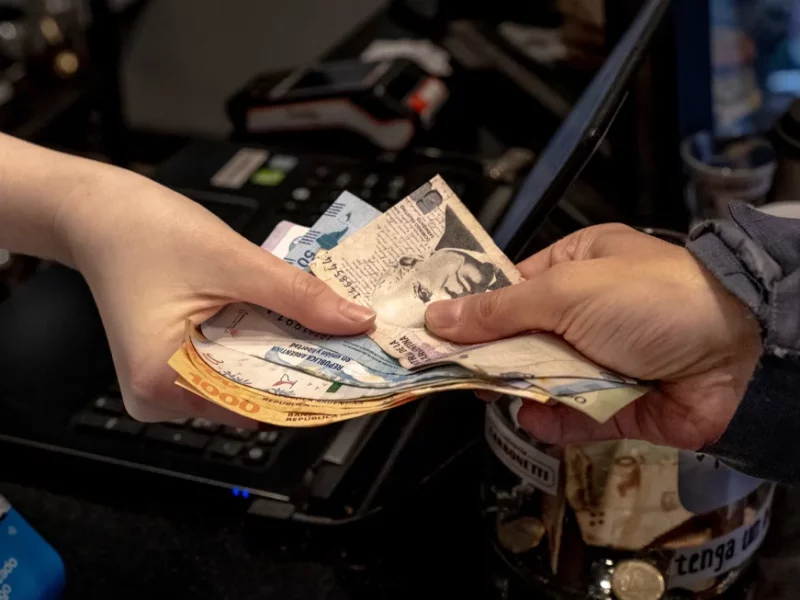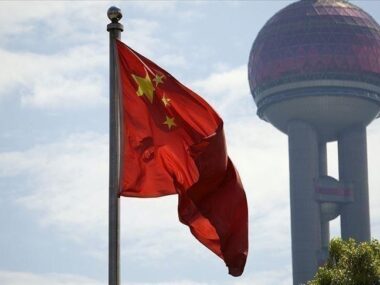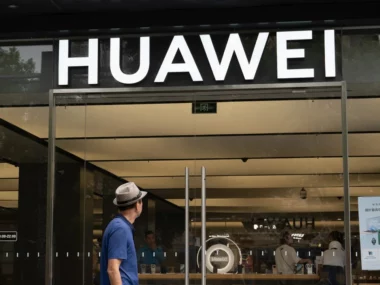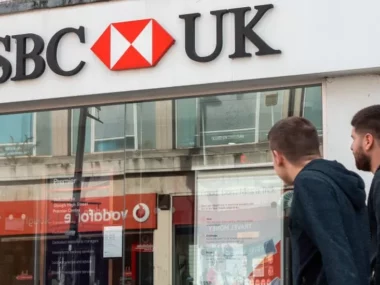Argentina is set to implement emergency economic measures, including devaluing the peso by more than 50%, according to an announcement made by the country’s Economy Minister, Luis Caputo, on Tuesday.
This significant move will change the conversion rate for the dollar to 800 pesos per dollar, a considerable increase from the previous rate of 365 pesos per dollar. These measures come shortly after the beginning of President Javier Milei’s term.
President Milei campaigned on a promise to replace the peso with the dollar as a means to revitalize the struggling economy. The peso has been artificially supported for years through strict capital controls, and its value has depreciated by approximately 52% against the US dollar this year.
In recent years, Argentina’s central bank has increased the printing of the peso to help the government avoid defaulting on its debt, resulting in a surge in prices and hyperinflation. This move is the first in a series of steps aimed at addressing this hyperinflation issue, which prompted Argentina’s central bank to raise its benchmark interest rate to 133% in October.
On Tuesday, Economy Minister Luis Caputo reiterated President Milei’s campaign message that “there is no money” as he outlined additional measures. These measures include a reduction in new public works projects, plans to not renew labor contracts that have been in effect for over a year, and cuts to energy and transportation subsidies.
Caputo noted that “for a few months, we’ll be worse off, particularly with inflation.”
Regarding public works, he expressed that “there’s no money to pay for projects that often end up benefiting politicians and business figures.”
The International Monetary Fund (IMF) expressed support for these new initiatives following Caputo’s announcement. Julie Kozack, IMF director of communications, stated in a press release that IMF staff welcome these bold initial actions, which aim to improve public finances while protecting vulnerable segments of society and strengthening the foreign exchange regime.
A comprehensive proposal for extensive economic actions.
In his triumphant address on Sunday, Milei didn’t delve into the specifics of his economic agenda. However, the self-proclaimed “anarcho-capitalist,” known for wielding a chainsaw during his campaign to symbolize his intentions to reduce government expenditures, pledged to implement “radical” reforms.
“I want you to understand that we are embarking on the reconstruction of Argentina after more than a century of decline, reshaping the principles of freedom. Although we will face a challenging period, we will progress,” said Milei, an economist, as he was sworn into office.
While Caputo did not outline any plans on Tuesday to eliminate the peso, adopting the dollar as the official currency of Argentina would necessitate the exchange of all pesos held by individuals and businesses for dollars, as well as assigning a dollar value to all assets and contracts. This move would essentially transfer control of the country’s monetary policy, including interest rates and money supply, from the Central Bank of Argentina to the US Federal Reserve.
Several significant challenges would be associated with the potential adoption of the dollar in Argentina. One of the main challenges is that Argentina lacks a sufficient supply of dollars to completely replace the peso. Moreover, this transition alone is unlikely to completely resolve the economic crisis that the country is currently facing.
While some other countries, such as Ecuador, El Salvador, and Panama, have taken similar steps to dollarize their economies, none of them are as large as Argentina in terms of economic scale.
Milei has already engaged with top US officials since assuming office, and his economic team has been collaborating with the International Monetary Fund (IMF) to revise the country’s foreign policies and revitalize its economy.











